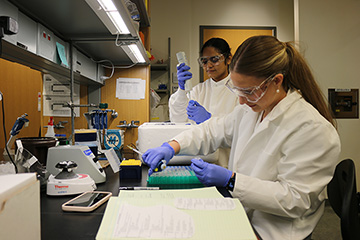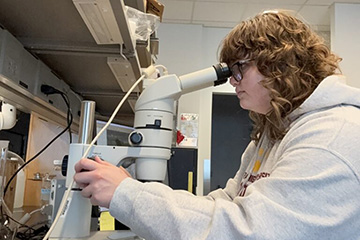CMU biology professor explores link between social stress and brain health
Central Michigan University Biology faculty member, Peter Dijkstra, has embarked on some innovative research thanks to a $443,315 grant from the National Institutes of Health (NIH). His study aims to unravel the impact of social stress on brain health, using the highly social cichlid fish Astatotilapia burtoni as a model.
Unraveling the mysteries of social stress
Dijkstra's research delves into the intricate relationship between social status and oxidative stress in the brain, a key player in various mental health and neurodegenerative diseases. While common belief may be that only low social status induces stress, Dijkstra challenges this notion, hypothesizing that both high and low social status can contribute to oxidative stress.
His research team focuses on the role of androgens in regulating oxidative stress in the brain using the A. burtoni cichlid fish, a model system in behavioral neuroscience. This species is useful to study social stress because males compete aggressively for territories and high social status. Although high social status comes with certain benefits, such as mating rights, continuously defending your territory can be energetically demanding.
Addressing fundamental questions with biomedical implications
The research has far-reaching implications, aiming to provide insights into how social status and androgens impact brain health and oxidative balance at the organismal level. Chronic psychological and social stressors have been linked to oxidative stress in the brain, a factor in nervous system disorders. Dijkstra's work seeks to unravel the molecular mechanisms behind these phenomena and their potential connections to diseases such as depression and age-related brain conditions.
Applying findings to biomedical field
Dijkstra emphasizes that beyond understanding how males manage the energetic cost of territorial defense, the research holds biomedical applications. The study explores the effect of social stress on the brain, a crucial area given the evolutionary similarities in the molecular mechanisms regulating behavior and stress adaptation between fish and humans.
Student involvement and collaborations
The research involves students at various levels, including two master's students, Olivia Buzinski and Tyler Beyett, and several undergraduates, including Ashley Harvey and Brady Bush (now in CMED). Students play a crucial role in recording behavior, conducting capstone projects, and contributing to preliminary data collection. The collaborative efforts with co-Investigator Dr. Ryan Wong from the University of Nebraska at Omaha underscore the interdisciplinary nature and significance of the study.
Dijkstra's project not only expands our understanding of the impact of social stress on brain health but also offers a unique opportunity for students to engage in innovative biomedical research. The outcomes of this study may pave the way for advancements in mental health and neurodegenerative disease research.




